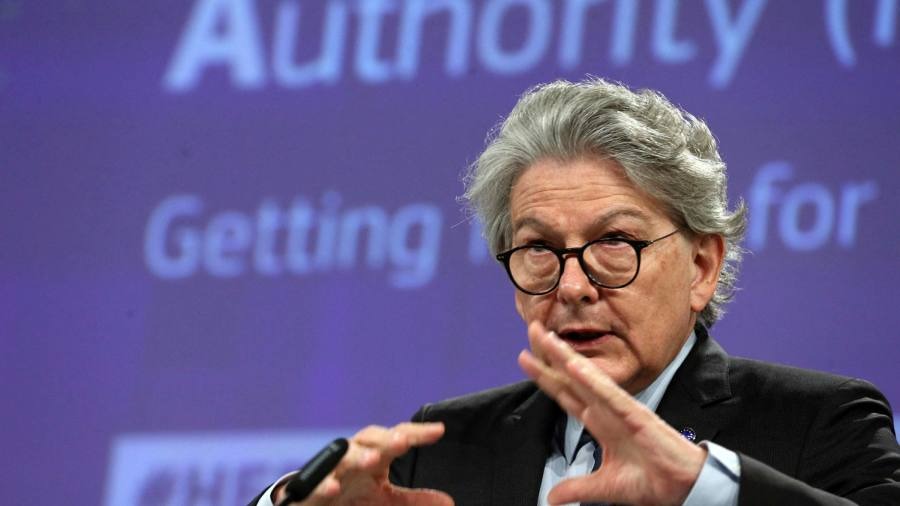
EU officials conduct on-site inspections at company headquarters to assess control measures against Russian propaganda and other related issues
Following a visit by European Commission officials to Twitter’s headquarters to assess its ability to operate within the confines of EU regulations, the company has agreed to abide by stringent new laws regarding fake news, Russian propaganda, and online crime. This decision comes shortly after Elon Musk, the owner of Twitter, withdrew from the voluntary disinformation code of practice established by the bloc.
EU officials conducted a unique exercise at Twitter’s headquarters, engaging in a mock scenario alongside Twitter staff to evaluate the company’s measures against Russian propaganda, fake news, and criminal activities such as child sexual exploitation. Thierry Breton, the commissioner overseeing the implementation of the Digital Services Act, expressed appreciation for Twitter’s voluntary participation in the test. He emphasized that the EU would promptly and decisively enforce the comprehensive new laws set to take effect in August, serving as a stern warning to all social media platforms.
Regarding online crime, there is no room for compromise. It is imperative for major online platforms to establish robust internal controls and allocate adequate resources to ensure compliance with the upcoming European regulations,” he stated.
Although the new laws will be effective from August 25, concerns grew within the EU about Twitter’s compliance. One commissioner recently cautioned the company that an unregulated approach akin to the “wild west” would not be tolerated.
The exercise encompassed various aspects, including recommended content and measures to combat illegal online content such as child sexual exploitation, in addition to Twitter’s approach to disinformation.
A total of forty-four companies, including Google and Facebook, are actively participating in the EU’s code of practice, which was introduced to assist social media platforms in preparing for the forthcoming laws.
The EU had previously cautioned Elon Musk that failure to comply with the laws could result in a complete ban in Europe or fines amounting to 6% of the company’s global revenue.
During a two-day visit to Silicon Valley, Breton remarked that Twitter still has a significant amount of work to do in order to be fully prepared. He acknowledged Twitter’s earnest approach to the exercise and its identification of key areas requiring attention to comply with the Digital Services Act (DSA). With just two months remaining until the implementation of the new EU regulations, continuous efforts are necessary to ensure the timely and effective establishment of the required systems.
I emphasized to Elon Musk and Linda Yaccarino (Twitter’s chief executive) the importance of Twitter being highly proactive in addressing illegal content within the European Union.
“Combatting disinformation, including pro-Russian propaganda, will also be a key priority, especially with upcoming elections in Europe.”



